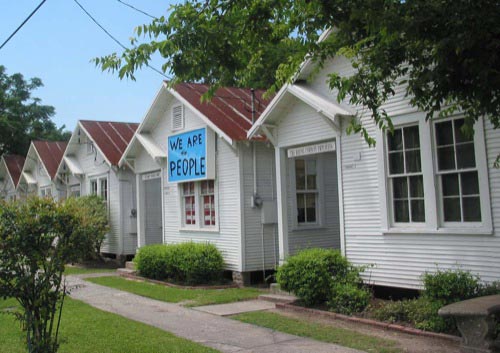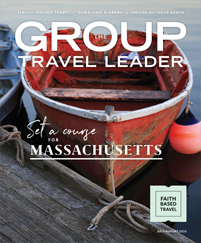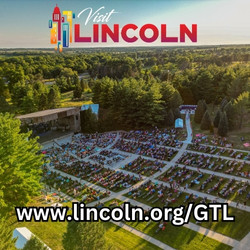 Courtesy Greater Houston CVB
Courtesy Greater Houston CVB
When Melva Roy was asked by the local convention and visitors bureau to develop an African-American heritage tour of Houston, she initially declined because she felt she did not have adequate information about the city’s black history.
After giving it some thought, she approached, Martha Whitting, the granddaughter of Jack Yates, a leader in the post-Civil War settlement of freed slaves in Houston. Roy spent many nights at Whitting’s kitchen table, eating offered cookies and listening raptly to Whitting’s stories of the early African-American history of Houston.
Roy taped her sessions with Whitting and used them to develop tours of Houston that go beyond just the brick and mortar of historic sites. Her tours are filled with stories about the people, such as Jack Yates, who strived to make a new post-slavery life in Houston that help bring African-American history to life.
“Yes, I think people are probably surprised” about the city’s African-American heritage, she said. “To me, Houston has some rich African-American history. Mrs. Whitting gave me all the material, all the history I have pertaining to this. I will still sit on the floor and listen to those tapes when preparing a tour.”
Such stories of the people who overcame so much to carve out successful lives in a segregated America add richness to African-American heritage.
Roy begins a tour by telling the story of Yates, who was granted his freedom in Richmond, Va., but chose to stay in slavery because his wife and children were still slaves.
After being sold, the family ended up in Texas when emancipation came at the end of the Civil War.
“They came up the Buffalo Bayou and settled in what was then the Fourth Ward,” said Roy. “The Fourth Ward, later called Freedmen’s Town, was the original black area of Houston, Texas, where slaves came after being freed in 1865.
“They [Yates and other freed slaves] built that area themselves out of material that came out of the banks of the bayou. That is what is impressive.”
The freed slaves bought land from Lady Obedience Smith, who had arrived in Texas from Mississippi in 1833 and received a 4,600-acre land grant from the Republic of Texas.
“By Yates being an educated slave, he believed in education,” said Roy. “As they came into town, he taught them how to read, write and be independent and take material from the bayou and build and make their own area.
“Anybody who was anybody back in the day, as far as African-Americans, came out of the Fourth Ward.”
Roy said the Fourth Ward/Freedmen’s Town, which is a historical district on the National Register of Historic Places, was a large area that now includes some of the major downtown buildings.
“When they put in the freeway system, they separated it from downtown,” said Roy, who is a member of the Freedmen’s Town Association, which tries to preserve the area’s heritage.
Yates founded the Bethel Baptist Church and was the first ordained minister of the Antioch Missionary Baptist Church in the Fourth Ward, the oldest black Baptist congregation in Houston.
African-American contractor and politician Richard Allen built the current church building in 1879.
Yates’ son, Rutherford B.H. Yates, was co-founder of the Yates Printing and Lithography Co. in 1921, the first black-owned printing company in Houston.
“He was also responsible for integrating the old Houston Post newspaper,” said Roy.











